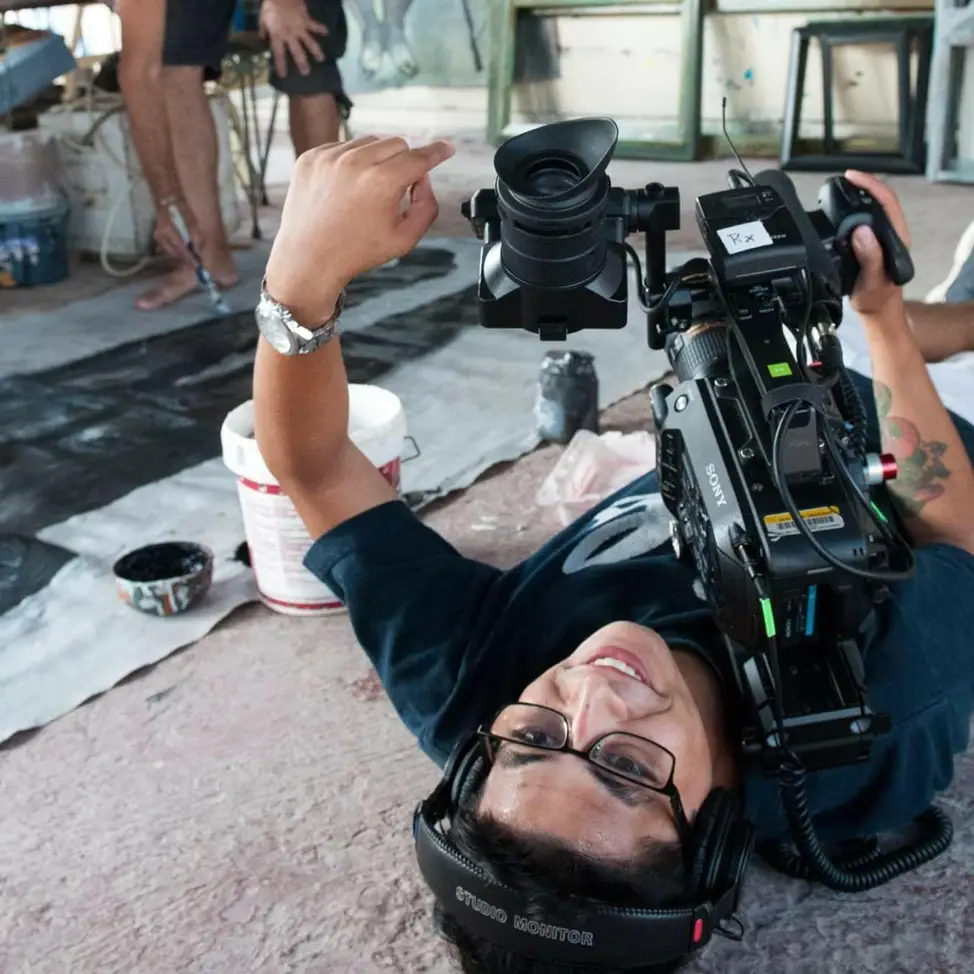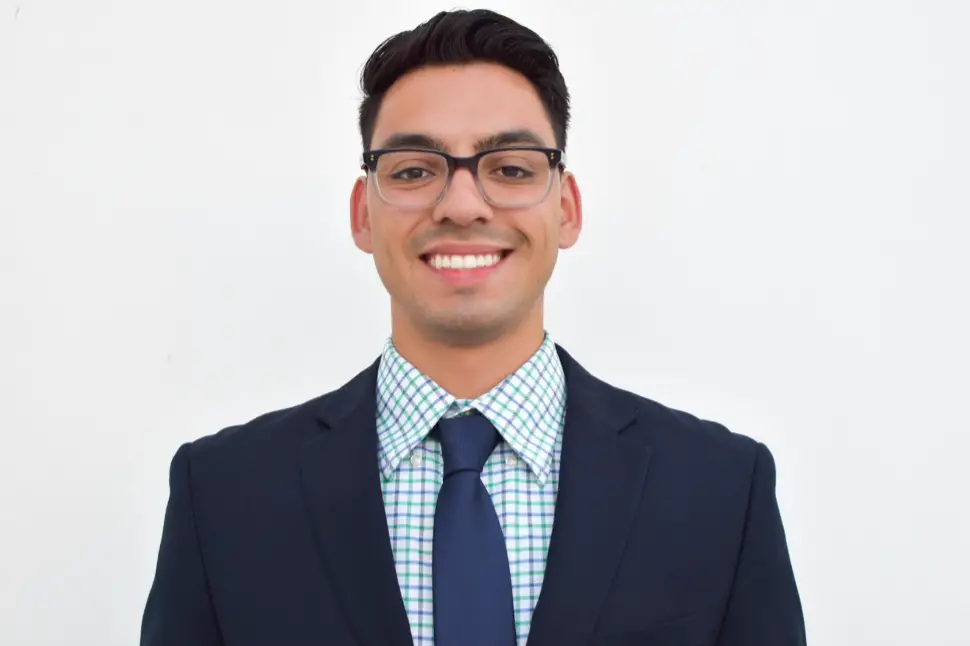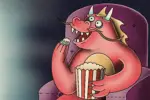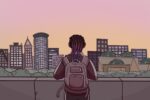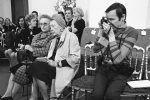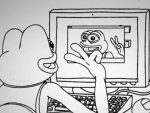Ramsee Chand’s love for story led him to never give up on his dreams to study film at New York University’s Tisch School of the Arts, even when he was denied.
Chand is the son of immigrant parents who instilled the meaning of hard work and dedication in him by sharing the stories of their upbringing in their own countries, Fiji and El Salvador. Chand grew up thinking that he would apply his parents’ hard-working values to a career in the medical field as a surgeon or something similar.
But in high school, he began realizing he had a love of story through film, television and books — he found what he was truly passionate about.
Abraham Ramirez: What was the exact moment you decided you wanted to become a filmmaker?
Ramsee Chand: During my sophomore year of high school, I was sitting in this dark theatre for two hours watching a movie with some friends, completely engrossed in this story, when I realized that storytelling was such a powerful tool. I remember talking to my mom after the movie and telling her that I wanted to be a filmmaker.
AR: That must have been a little out of the blue for her. What were your parents’ reactions?
RC: She took it kind of hard because it was a complete 180 from what I first wanted to do. Because if you say something for 10 years, even if you’re a child, people start to believe you. That tunnel vision becomes what defines you. But at the end of the day, both of my parents supported my decision because it’s what I wanted to do.
AR: How was it like getting into film school at NYU?
RC: I actually didn’t get into the film schools that I wanted when I applied out of high school. NYU, UCLA and USC rejected me, but NYU accepted me for their liberal arts program. I learned that I could go to their liberal arts school then apply again to transfer out, which is not guaranteed, but it was a risk I was willing to take.
My freshman year at NYU, I joined Delta Kappa Alpha, which is a cinematic fraternity. It helped me make friends that were into film. It got me on sets that helped me learn the filmmaking process.
I pretty much worked more sets than any other NYU freshman at the time because they’re in class every day of the week and I only had classes two days of the week, and the rest of my time I spent on sets.
I learned the ins and outs of filmmaking, sparking my own creative fire; I was a part of the yearly film festival and that really helped my application to transfer into the film school.
Once Chand was a part of the film program at NYU, his own storytelling projects took off. He spent his spring semester studying in Cuba and documenting two short films as his projects. One of his documentaries, “La Lucha Entre Cubas,” followed the life of a Cuban boxer, and the other, “Tour de Force,” highlighted Cuba’s tourism boom.
AR: What was the process of finding the stories you wanted to document in Cuba and what were they about?
RC: We had to come up with our own projects, so about a month before we left we had to read a bunch of news and get ideas. I had a friend who had just come back from Cuba for a week-long trip and he went to an old boxing gym. He met a bunch of Olympic gold medalists for boxing. My friend recommended that I check out the gym.
The gym is in the oldest part of Havana and that’s where I met Eduardo, a boxer and the subject of my first film. I found him so fascinating. The documentary is just about his life and how he’s trying to be a boxer and raise a family at the same time.
Professional sports don’t exist in Cuba, it’s only amateur, and even though Cuba produces the best boxers in the world, no one gets paid. It’s all on their free time. For him, his life is a struggle between what he wants to do and what he has to do, and that’s really the struggle of every Cuban.
The second documentary, “Tour de Force,” is about how modern-day tourism is changing Cuba and the point of view is from a tour guide and a taxi driver. Taxi drivers make the most amount of money out of any profession in Cuba because they can take money from tourists directly instead of getting their pay from the government.
The taxi driver, my friend Lester, is a trained engineer, but his job isn’t sustainable so he has to drive a cab. The documentary kind of follows their career paths, which are sort of lucrative in Cuba, but one is doing it out of necessity and the other sees an economic opportunity.
Both documentaries kind of show two perspectives. The first is more internal. Cuba on Cuba. The second documentary is how the rest of the world is impacting Cuba.
AR: As a documentarian, what do you think your role is in showing others these stories?
RC: I think the whole reason storytelling exists is so that humans can be challenged on their preconceived notions so that they can have a greater outlook or deeper outlook in a new way.
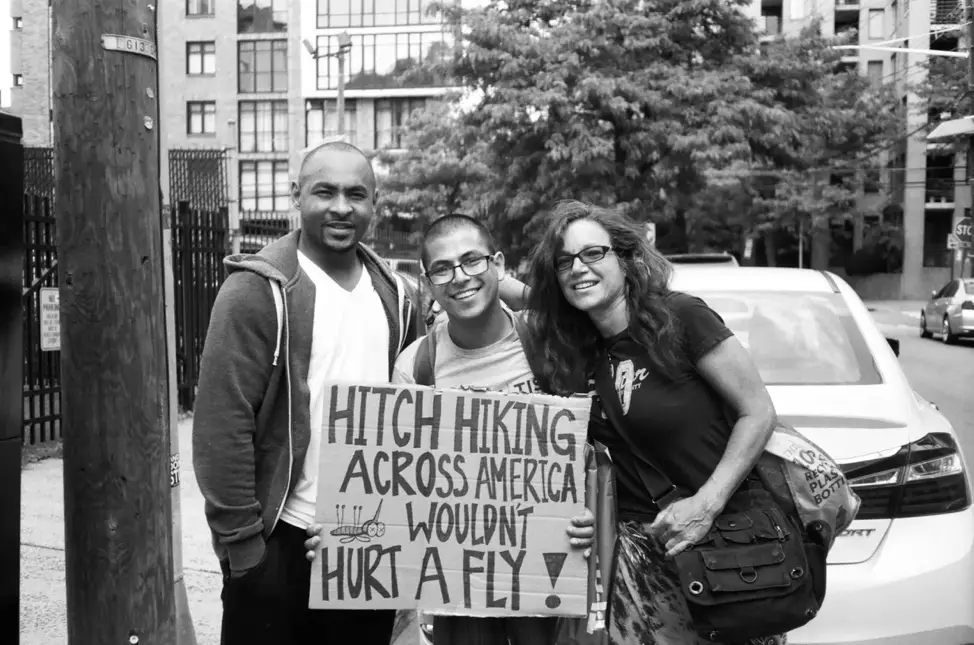
AR: What made you want to hitchhike across the country?
RC: I have a bucket list and there are a ton of things on it that I want to accomplish in life. It was just something that I wanted to do and it was the perfect time to do it.
AR: What were your parents’ reaction when you told them you wanted to hitchhike across the United States?
RC: They were 100 percent against it. My mom told me, “You know what? I know you’re going to do it anyway, so I’m just going to give you my blessing and feel better about myself. Don’t die and if things get really bad, you can get a bus ticket back.”
When I was already on the trip and things seemed hard, she would say, “You know you chose this. You need to finish through.” She became my biggest motivator.
AR: Were there any people that stood out from that trip?
RC: Yea, I ran into this couple. They lived kind of near the Amish. They are off the grid because the guy is repairing some guy’s barn for free. They have pet alpacas that they bought from the Mennonites. I met the couple at a gas station. The guy was a construction worker at Villanova University and he kept calling me junior.
I got in his car and he offered to buy me dinner. He took me an hour out of his way with his wife. We were just chatting the entire time and it just goes to show that there are good people out in this world. They were just so selfless and willing to help me out. It was incredible.
AR: What were the sketchiest moments on that trip?
RC: The first night I had to sleep outside and I got chewed up by bugs. Then I thought to myself, “I’m going to stand on the side of the freeway and try and get a ride.” A cop picked me up and that was the first time I was ever in the back of a cop car.
There was another time when I found a guy that was driving from Wisconsin to California. The car broke down in the middle of Nebraska. There was a sign at the gas station that said the miles from the West and East Coasts, so I was right in the middle of the country.
The part back from Wisconsin to California was just really weird. The car owner was drunk the entire time and the other guy in the car had a lot of anger issues, so I spent most of the time driving. It was very strange.
AR: What was it like getting back into California and getting home?
RC: I ended up in Bakersfield, so I found this guy on Craigslist who was offering a ride from Los Angeles to San Francisco and he was going to drive right by my house, so I hit him up and told him I was in Bakersfield and he said, “Oh! I can pick you up.”
So we met at this mall in Bakersfield and he was the definition of a hippie. He rolled up in this old mail van, which he lives out of now. He has hammocks in there and all his instruments. His name was Kyle and was riding around with a guy named Booboo.
Essentially, they were driving around places and playing music and he told me, “Look dude, I only spend my money on food and diesel because I get my weed for free.”
We did the last part of the trip in nine hours, which typically takes four because we were bumming diesel from station to station. So I got home around midnight. I knocked on my door and I heard my grandma say, “Who the hell is knocking at this hour?” My mom’s reaction was, “Holy crap, you’re home! I didn’t know if you were alive!’”
AR: How did these experiences, in Cuba and hitchhiking, impact you? Did it change your understanding of life or expand your worldview?
RC: Yea, and you know it’s weird because I’m still trying to figure out how. It was one of the most transformative years of my life. I do take things in a different stride and I view life differently. It’s just a matter of how I viewed life before.
I think the biggest thing is that I’m much more of a positive and relaxed person now. I really don’t let stress get to me. I think that I’m more open and receptive to the world around me and what’s going on.


